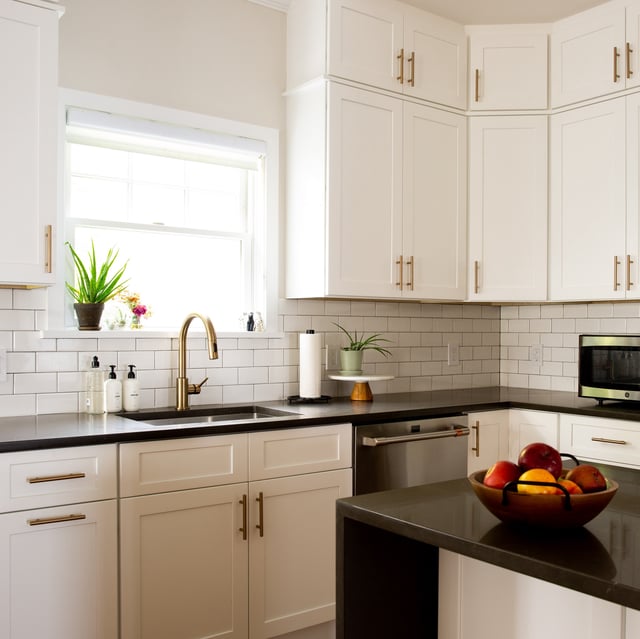
Kitchen
How Long Does a Kitchen Remodel Take?
04.01.2025
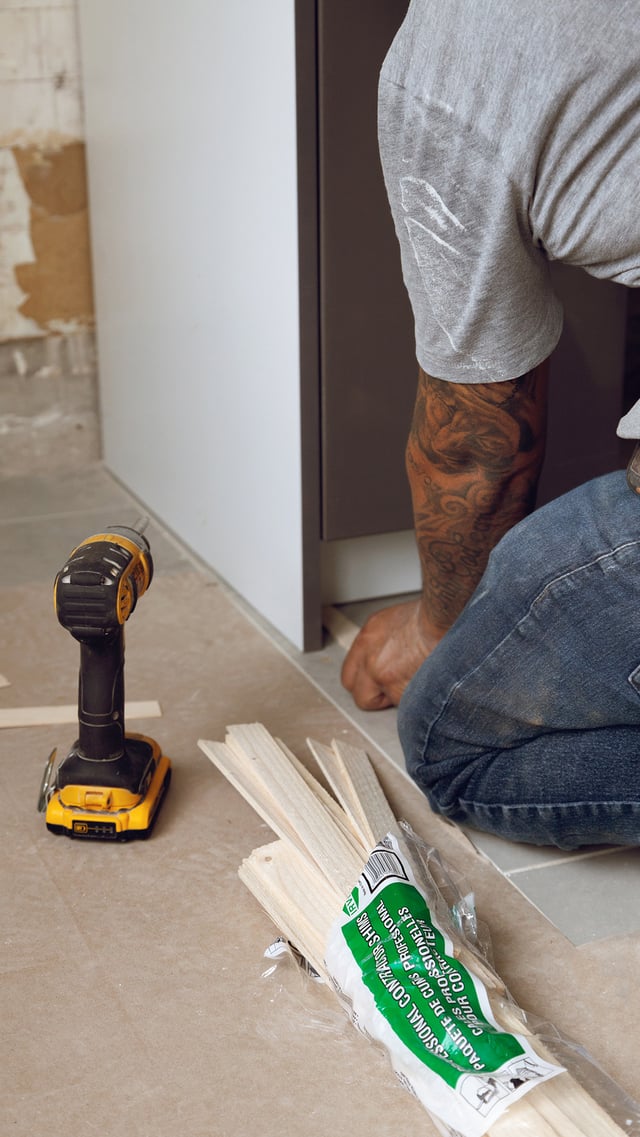
In This Article
By the time you decide to take the plunge and renovate your bathroom, chances are the project has already been simmering in your mind for some time. You can already envision your dream bathroom as if it was already there.
But once the choice is finally made to get started, it’s important to set expectations around how long everything will take. If you do decide to do things the old-fashioned way, through a general contractor, the process can be broken into a few stages, each of which you should carefully consider.
We’ve given broken out the phases you should expect from a traditional project into groups of tasks, giving you a pretty good idea of what that sort of process would look like. With some variation from project to project, the tasks outlined here are all necessary to bring any project to life, unless you go with a more comprehensive solution.
Before any renovations take place in your bathroom, some preliminary work needs to happen. You should have a good idea of what you want from your remodel before you meet with your contractor. You’ll have to go over your plans with a contractor, who will need time to measure out the space, know what features you want to include, and work with you to decide where they should best be placed. These details will also help your contractor establish an estimate for how much your remodel will cost.
After finalizing the design (and agreeing on a price), you (or your contractor) can begin ordering the materials. There are some things to keep in mind, though. For instance, if you order custom cabinets or tiles that need to be shipped from overseas, this stage can take a lot longer. This can also lead to certain materials arriving in a very staggered fashion. Work with your contractor and suppliers to create a schedule that involves as few gaps as possible.
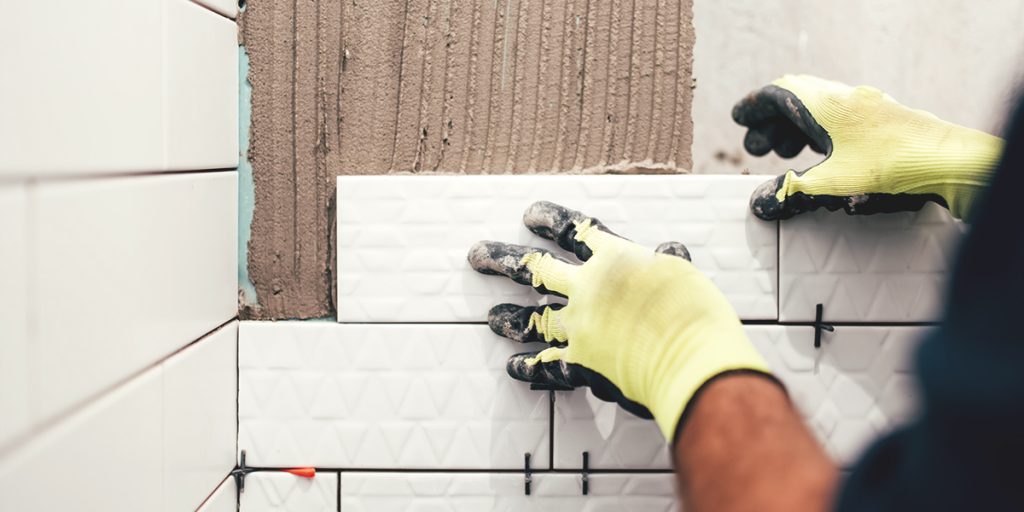
The first part of construction is the demolition of the existing bathroom space. Fairly straightforward, this step takes a day or two at most, and includes things like site preparation, floor protection (unless you’re redoing that, too), installing dust barriers to contain the work and protect the rest of the house. (Days 1-2)
Once the existing bathroom has been demolished, the layout, framing and backing are made, transforming the design outlines to the actual bathroom space. Plumbing and electrical are roughed in over the next few days, with installation of the tub or shower, and new exhaust fans and ventilation also being installed. (Days 3-4)
After the guts of the bathroom are in place, drywall can be put up wherever necessary. Part of this process will also include the installation of moisture-resistant boards around sensitive areas, particularly around the tub or shower. (Days 5-10)
The installation of walls allows tiles to be put in place. This process can about a week on average, give or take a few days. It can last a bit longer if extensive drywall work is needed, if the room temperature doesn’t allow mud to dry quickly, or if the ceilings are also being changed from a textured to a smooth profile. (Days 11-14)
Once the drywall is up, wall and floor tiles can be installed, grouted and sealed. This process will take four or five days on average. After the tiles are set, the bathroom walls can be primed and painted with an initial coat. (Days 15-20)
Then, the last bits of construction are done. Vanity, counter, and plumbing and electrical fixtures are installed, a few more coats of paint are applied, and accessories like towel racks are put up. (Days 21-23)
After the construction has effectively been completed, there are still a few small but important steps that need to be taken to ensure the space is ready for use. The contractor will need to clean the area and inspect the electrical and plumbing to ensure the room can be used without any inconveniences. (Days 24-25)
With all of these steps done, you’re ready to enjoy your newly remodeled bathroom.
Bear in mind that several things can affect the renovation schedule. Demolition may reveal unexpected issues like rot or mould, products may arrive damaged and need to be replaced, special-order items may take longer to arrive (hence the possibility of waiting up to 8 weeks for materials), and specific contractors, like plumbers or carpenters, might have scheduling conflicts, which can delay work on your project.
This outline gives you a baseline indication of how long the different parts of a renovation will take. If your bathroom is fairly small, it’s likely the project will take less time. Setting timeline expectations in advance will help the project to stay on track and on time.

Renovate confidently with Block
Easily compare quotes from top quality contractors, and get peace of mind with warranty & price protections.
Thousands of homeowners have renovated with Block

4.5 Stars (100+)

4.7 Stars (100+)

4.5 Stars (75+)

Kitchen
How Long Does a Kitchen Remodel Take?
04.01.2025
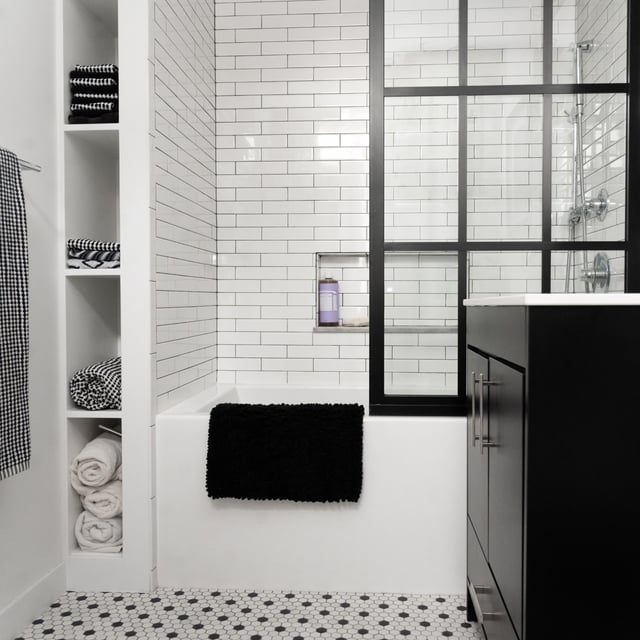
Remodeling
How to Finance a Bathroom Remodel in New Jersey
03.19.2025
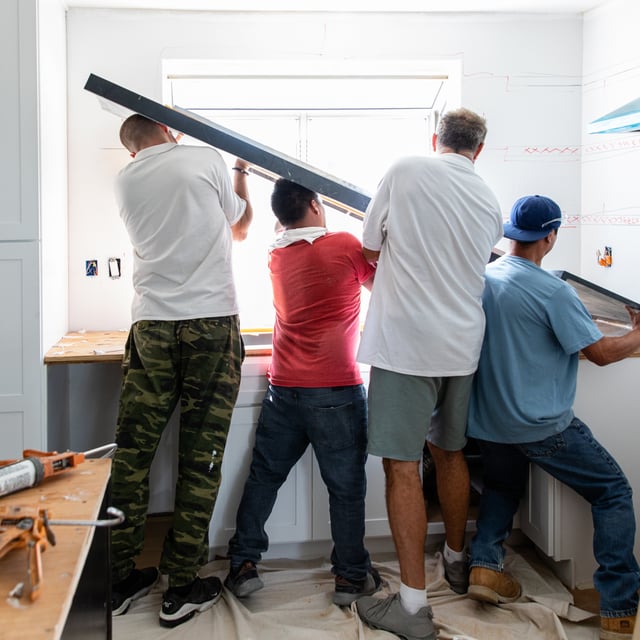
Remodeling
Should You Renovate Before Selling Your Home?
03.19.2025
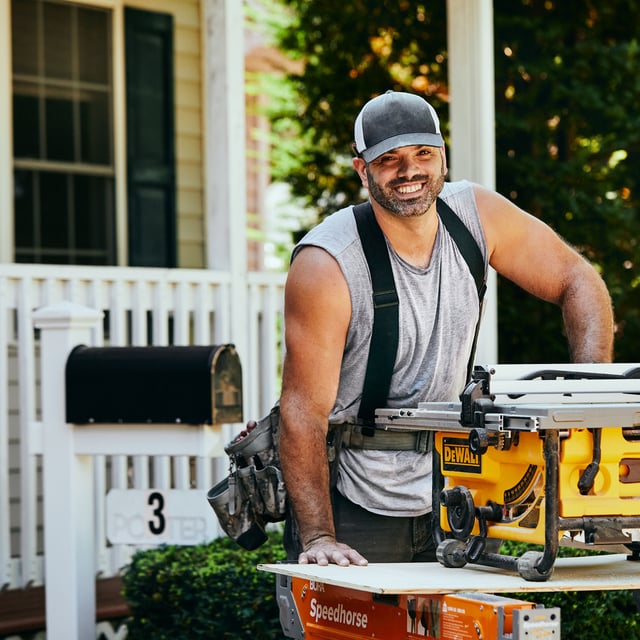
Remodeling
How to Renovate in Boston: A Complete Guide
03.19.2025
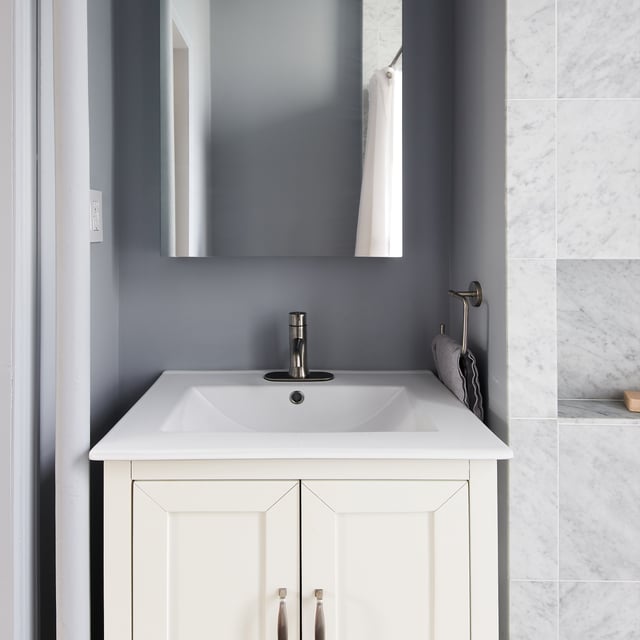
Remodeling
How to Renovate in New York City: A Complete Guide
03.19.2025
Renovate confidently